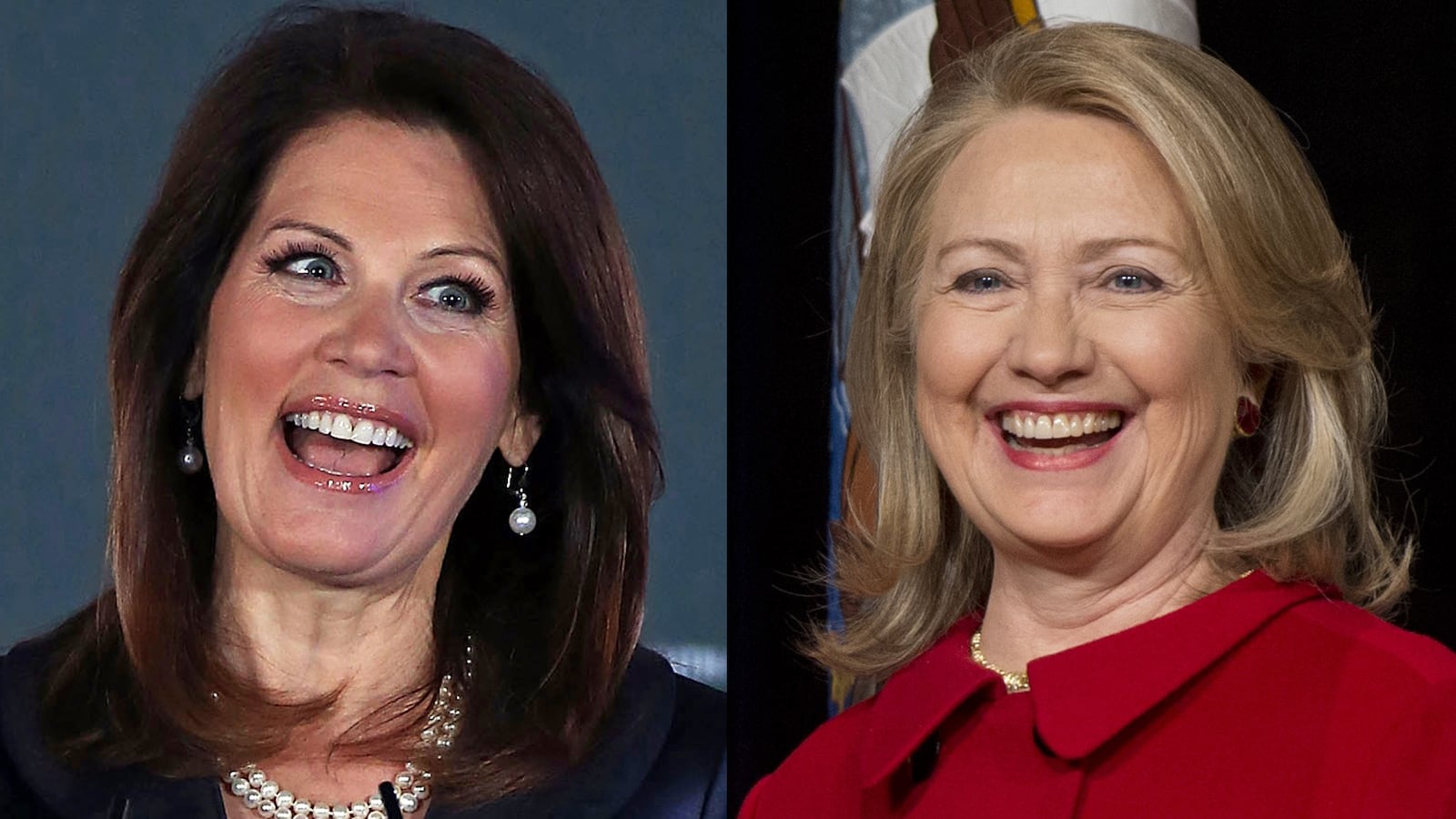As the only woman to win a delegate to the Republican convention in almost forty years, Michele Bachmann now says many Americans “aren’t ready” for a female president. “I don’t think there is a pent-up desire,” she told syndicated columnist Cal Thomas last week.
I’ve been in Washington a long time, and I’m accustomed to hypocrisy, mendacity, and good old-fashioned flip-flopping. What I don’t understand is a woman who ran for president, who asked people to give her substantial sums of money to advance her campaign, who now says the country isn’t ready.
The most charitable explanation for Bachmann’s assertion is that the voters rejected her, she’s a woman, and she now thinks any female contender is likely to meet the same fate. It’s a pretty big leap from a single data point, but Bachmann’s remarks, whether well-intended or a partisan jab, do force into the open an ongoing discussion about Hillary Clinton, and the extent to which gender will influence her expected bid for the presidency in 2016.
Bachmann’s suggests that Clinton will be at a loss because electing a woman doesn’t achieve the historical stature of electing the first black president. “I think there was a cachet about having an African-American president because of guilt,” she said. “People don’t hold guilt for a woman.”
Bachmann could use a refresher course on the 2008 election, and the circumstances that helped elect Barack Obama. It was not because of liberal guilt, but because the country—or a broad swath of the country—was looking for hope and change. He’s not been as successful as many would like, in large part because of GOP intransigence that has turned an opposition party into an enemy camp.
So her hypothesis is wrong. The people who made up the coalition that voted for Obama were pleased to demonstrate they could vote for a black man, and that their country would elect a black man, but they would have voted for almost any Democrat. Obama was not elected on the strength of crossover votes from Republicans seeking to assuage their guilt. Sorry, Michele.
The other point to make is that elections are not comparable. These candidates exist in relationship to each other. Hillary Clinton will be running, if she does, as a completely unique figure—a former First Lady, U.S. Senator and Secretary of State—a high-profile woman with a really strong brand. Obama in ’08 was a blank slate; he could be whatever the voters imagined. He was a Rorschach test, vaulted into the presidency by positive perceptions and unrealistic expectations.
Clinton occupies a space in everyone’s brain. We all know what we think about her, and whether we like her or not. Even those who dislike her, some intensely, concede she’s qualified to be president. Her challenge is to position herself as an agent of change, not an easy thing to do when you were last in the White House two decades ago. “It’s like turning Old Coke into New Coke,” says Paul Equale, a lawyer and longtime Democratic activist.
The extent to which Clinton’s campaign will excite and energize the Democratic base is unknowable. That’s the challenge she faces. The historic nature of her candidacy will help; it’s a foundation to build on, but ultimately the ideas and the vision she advances will speak to the voters most clearly.
Some women of a certain age were disappointed and angry over Obama getting ahead of Clinton in ’08, a frustration that you could say had its roots in the suffrage movement when Lincoln advocated for the 13th amendment giving black men the right to vote while telling women they had to wait. It took another 55 years or so for the suffragists to push their right to vote over the finish line. Clinton’s supporters have waited four years, and there’s no indication their loyalty and zeal have diminished.
Lastly, Clinton won’t be running in isolation. As the Democratic nominee, she will face the nominee of a Republican Party whose brand has been tarnished by a parade of politicians who don’t know how to speak to women, or how to grasp the magnitude of the demographic change in America. Bachmann got attention for some of the wacky things she said during her short-lived run for the presidency, but she did help make the GOP more comfortable with women as leaders and qualified to president. Oh, the irony.






